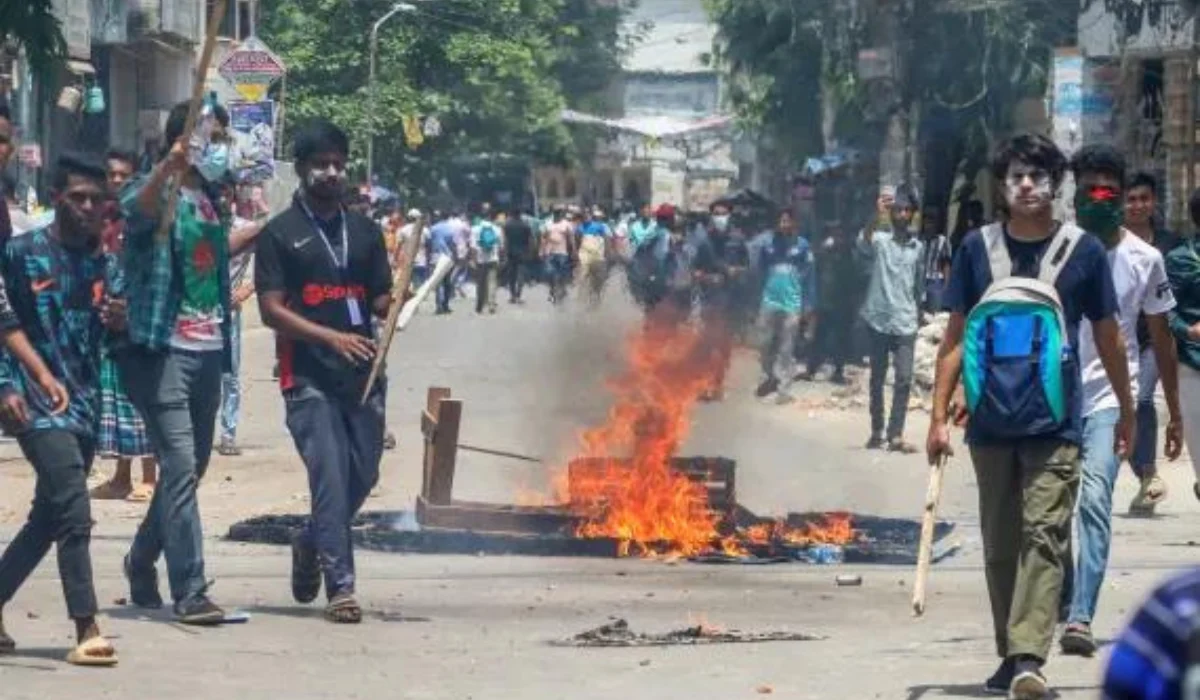Widespread demonstrations in Bangladesh have turned deadly this week, with escalating clashes between students, pro-government supporters, and armed police. The protests, which began over concerns about the civil service job quota system, have led to numerous casualties and injuries.
Violence erupted as riot police used tear gas and rubber bullets against protesters, who were armed with sticks and barricaded streets and university campuses in Dhaka and other cities. In a dramatic turn, student protesters allegedly set fire to the headquarters of the state broadcaster Bangladesh Television (BTV), leading to the station going off-air on Friday. Protesters have also called for a national shutdown, challenging the administration of Prime Minister Sheikh Hasina.
Why Are Students Protesting?
The protests centre around the government’s quota system, which allocates more than half of civil service positions to specific groups. About 30% of these positions are reserved for the families of veterans from Bangladesh’s 1971 war of independence from Pakistan. Critics argue that the system is discriminatory and disproportionately benefits those connected to the ruling Awami League party, including Hasina herself, whose family has strong historical ties to the country’s political elite.
Impact on Youth and Economy
The quota system’s impact on job opportunities is a major concern for young Bangladeshis. Despite significant economic growth under Hasina’s administration, progress has stalled post-pandemic, and inequality has worsened, especially in urban areas. With over 30 million people out of employment or education in a population of 170 million, the system is seen as exacerbating existing disparities.
Although the quota system was abolished in 2018 following similar protests, it was reinstated in June by the High Court, which deemed its removal unconstitutional. The Supreme Court temporarily suspended the quotas in July, but the system’s continuation has sparked further unrest.
Origins of the Protests
The unrest began at Dhaka University on July 1 and quickly spread to other campuses and cities, featuring road and rail blockades. Violence intensified on July 15 when members of the Bangladesh Chatra League, the student wing of the Awami League, reportedly attacked student protesters at Dhaka University.
In response, Bangladesh has deployed its paramilitary Rapid Action Battalion, which was sanctioned by the U.S. in 2021 for human rights abuses. Authorities have also imposed internet restrictions, with Netblocks reporting a “near-total national internet shutdown.”
Government Response and Student Sentiments
Prime Minister Hasina has called for a judicial investigation into the violence and urged patience until the Supreme Court delivers its verdict. However, her remarks, including referring to protesters as “razakar” — a term historically used for those accused of collaborating with the Pakistani army during the 1971 war — have further inflamed tensions. Protesters have expressed frustration, demanding an apology and meaningful reforms.
The protests have evolved beyond the quota issue, reflecting broader dissatisfaction with the government’s authoritarian tendencies. Demonstrators argue that the excessive force used against them underscores the regime’s undemocratic nature. As one protester stated,
“This is not just about quota protests anymore; it’s a larger movement against an authoritarian government.”


